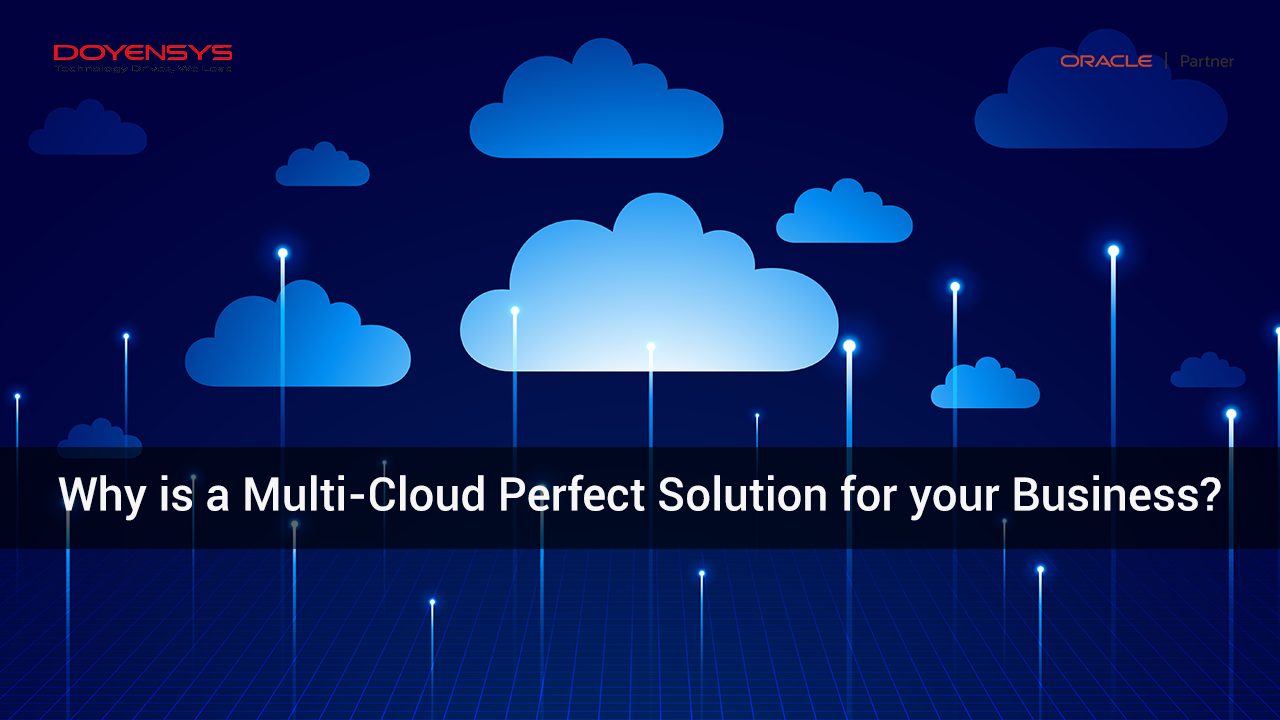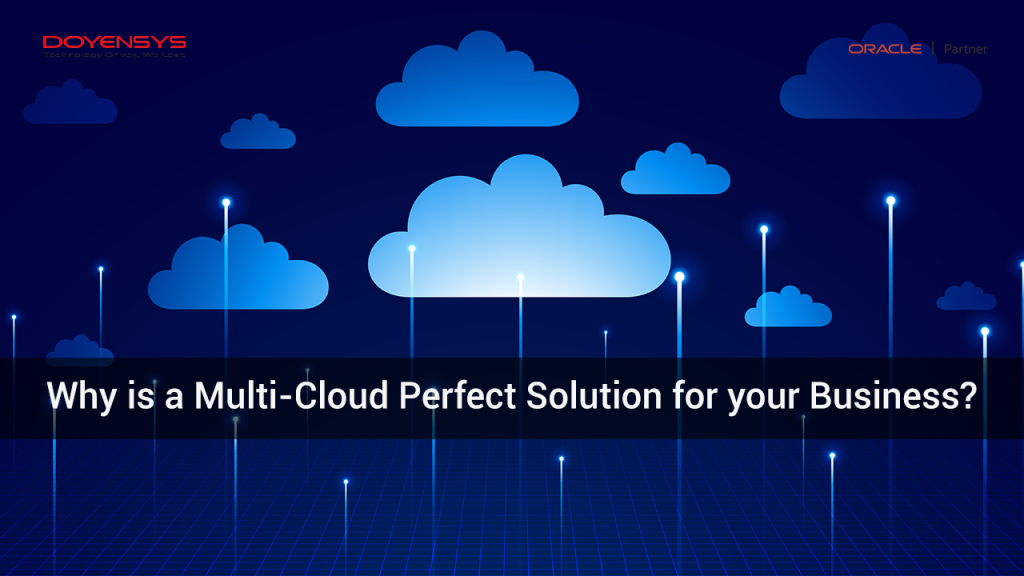
As more businesses migrate to the public cloud, they must decide whether to employ a single cloud provider, including popular Amazon Web Services (AWS) that uses a multi-cloud approach supporting various cloud providers. For operating cost, speed, ease of use, security & dependability, the cloud offers virtually endless possibilities in the data storage, server, and networking software sectors.
AWS, Microsoft Azure, and Google Cloud Platform are just a few of the main cloud platform providers. A multi-cloud strategy benefited businesses to reap significant benefits by combining the best of many platforms rather than relying on a single provider for all of their cloud demands.
Multi-cloud is unintentional in some organizations. The marketing department chooses AWS, but the HR department chooses Azure, which operates in its silo. That’s all there is to it: a multi-cloud environment.
However, multi-cloud is a strategic need for many enterprises, and catastrophe mitigation is a driving factor. In some cases, multiple clouds can reduce the danger of widespread data loss or application outage due to a breakdown in a cloud computing environment.
 Why multi-cloud be the right solution for your business?
Why multi-cloud be the right solution for your business?
Using numerous instances of multiple clouds from different providers is called multi-cloud. Using different vendors for multi-cloud implies having access to varied features, underlying infrastructure, security, and other characteristics unique to each vendor’s services.
A multi-cloud setup may be the best strategy for organizations looking to optimize cloud infrastructure capabilities and spending. Multi-cloud ties it all together, allowing businesses and organizations to access data from several sources and store it in the most appropriate environment for its needs.
Risk management, avoiding lock-in and reliance on a single provider, and compliance with regulatory standards are all reasons to use a multi-cloud architecture. In addition, cloud services are simple to utilize and need little capital.
Furthermore, they offer total data security and a smooth remote working experience. As a result, cloud providers frequently recommend multi-cloud to tap into each other’s customer base.
Companies that create sophisticated infrastructure setups incorporating various clouds and their unique concepts benefit a lot of service providers and IT consulting firms. For scalability, agility, or business continuity, most businesses opt for a Cloud Strategy.
Oracle Cloud Infrastructure (OCI) is an example of an Infrastructure-as-a-Service platform that can work in a multi-cloud context. OCI is a next-generation cloud built to handle these types of enterprise workloads. You can transition existing record and process control applications to high-reliability servers, whether virtual or bare metal, with little or no changes.
Virtual servers at OCI are hosted on enterprise-grade bare metal servers. The bare-metal servers connected via hyper-converged networking can be used for HPC. The network is fully constructed to allow for maximum communication while avoiding the effects of cloud neighbours.
OCI is a cloud that enables you to execute your cloud plan by migrating existing mission-critical operations to the cloud. In addition, the Oracle platform further brings cloud services at a lesser cost than other cloud providers. OCI also offers cloud services like virtualized compute, storage, containers, and other cloud services.
Adopting a multi-cloud strategy- what to consider?
Adopting a multi-cloud strategy isn’t usually at the top of their to-do list. However, when considering a multi-cloud strategy, IT departments must evaluate crucial aspects of their organization to determine if it is the best option for their needs. As a result, when defining your organization’s goals, you should address the two major questions.
# Is it possible to achieve cloud interoperability and standards?
The modern cloud is designed to be interoperable. It emphasizes the importance of integrating networks and identity management in multi-cloud. A multi-cloud design that meets these requirements allows for smooth communication between clouds while minimizing logistical challenges for users and management.
For attaining interoperability, you must incorporate open standards. Supporting a popular open-source technology like Terraform, an open-source “Infrastructure as Code” platform, is a good illustration.
Low latency connections between clouds are also vital for ensuring that critical workloads run smoothly. However, if a cloud service causes more difficulties than it solves, it’s not the best option for a multi-cloud setup.
# Is there any security concern?
Security is always a major worry in today’s data-driven environment. New and unique issues emerge in a multi-cloud context, which is frequently linked to the concept of interoperability. Authentication and authorization are critical; if they are restricted to a single source, it can lead to a cascade of access difficulties.
Furthermore, any APIs must work to reduce risk to the multiple clouds and infrastructure. A holistic management view must be easily accessible to reduce risk and maintain proper data governance. Tools for logging, observability & security management can work across clouds with suitable interoperability to expedite this endeavor.
For current app developers, multi-cloud makes sense because they use lightweight specialized tools for the work and proactively explore with smaller service providers. In addition, hyper-focused solutions encourage smaller providers to focus on specific case scenarios and underserved consumers.
Building apps with best-of-breed services provided by professionals in their domains is a trend that will continue to flourish, and we will all reap the benefits. So naturally, Oracle created the next-generation OCI to provide the optimum environment for Oracle Database service while also allowing for interchange with other clouds.
Final Thoughts:
Customers may migrate from on-premises to OCI with minimum or no changes by using the Oracle Cloud Lift and Shift service, which provides free expert guidance. Doyensys Is a technology services business that specializes in Oracle solutions.
We are a respected brand name to consider if you require an enterprise-grade Oracle cloud provider. You can opt for Oracle infrastructure to seek result-oriented outcomes and organizational efficiency. We adhere to industry standards while following best practices for comprehensive database research.
